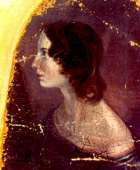“> “When I shall have departed from this world,
“When I shall have departed from this world,
Whenever ye have need of anything,
Once in the month, and when the moon is full,
Ye shall assemble in some desert place,
Or in a forest all together join
To adore the potent spirit of your queen,
My mother, great Diana. She who fain
Would learn all sorcery yet has not won
Its deepest secrets, then my mother will
Teach her, in truth all things as yet unknown
. And ye shall all be freed from slavery,
And so ye shall be free in everything;
And as the sign that ye are truly free,
Ye shall be naked in your rites, both men
And women also.”
-from “Aradia, or Gospel of the Witches” by Charles Leland. 1899
Autumn Night
“The moon is as complacent as a frog.
She sits in the sky like a blind white stone,
And does not even see Love
As she caresses his face with her contemptuous light.
She reaches her long white shivering fingers
Into the bowels of men.
Her tender superfluous probing into all that pollutes
Is like the immodesty of the mad.
She is a mad woman holding up her dress
So that her white belly shines.
Haughty,
Impregnable,
Ridiculous,
Silent and white as a debauched queen,
Her ecstasy is that of a cold and sensual child.
She is Death enjoying Life,
Innocently,
Lasciviously.”
-Evelyn Scott. published 1919
“> <a
<a
The Night – Wind by Emily Bronte
In summer's mellow midnight,
A cloudless moon shone through
Our open parlour window,
And rose-trees wet with dew.
I sat in silent musing;
The soft wind waved my hair;
It told me heaven was glorious,
And sleeping earth was fair.
I needed not its breathing
To bring such thoughts to me;
But still it whispered lowly,
'How dark the woods would be!
'The thick leaves in my murmur
Are rustling like a dream,
And all their myriad voices
Instinct with spirit seem.'
I said, 'Go, gentle singer,
Thy wooing voice is kind:
But do not think its music
Has power to reach my mind.
'Play with the scented flower,
The young tree's supply bough,
And leave my human feelings
In their own course to flow.'
The wanderer would not heed me:
Its kiss grew warmer still:
'Oh Come!' it sighed so sweetly;
'I'll win thee 'gainst thy will.
'Were we not friends from childhood?
Have I not loved thee long?
As long as thou, the solemn night,
Whose silence wakes my song.
'And when thy heart is resting
Beneath the church-aisle stone,
I shall have time for mourning,
And thou for being alone.'
Witches, artists, and writers have always held an affinity for the moon. On this esbat, as you struggle along with first drafts, revisions, and edits- allow yourself to go free. And if you start to worry, remember this from Shakespeare:
“Roses have thorns, and silver fountains mud;
Clouds and eclipses stain both moon and sun,
And loathsome canker lies in sweetest bud.
All men make faults.”









